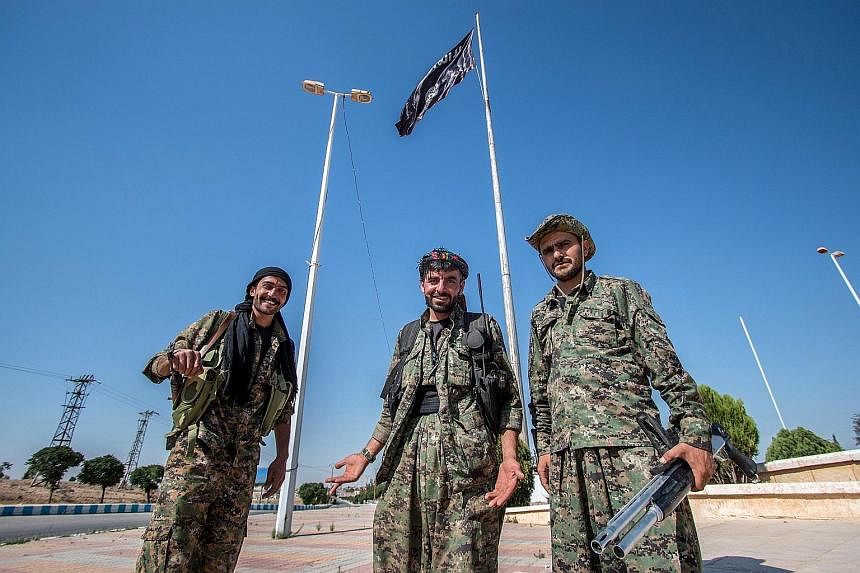BAGHDAD - Kurdish fighters have emerged as some of the most effective forces battling the Islamic State in Iraq and Syria (ISIS) in the year since the jihadists declared a cross-border "caliphate".
Iraq's Kurds defended their autonomous region, gained control of a swathe of long-disputed territory during ISIS' sweeping offensive and retook areas they lost to the jihadists, coming out better than most in a war with no real winners.
In neighbouring Syria, Kurdish forces defended the town of Kobane against ISIS in a months- long battle, retook the key hub of Tal Abyad on the Turkish border this month and fought the jihadists in other areas.
International air support played a key role in the success of Kurdish forces in both countries. The Kurds - who are estimated to number 10 per cent to 15 per cent of Syria's population and 15 per cent to 20 per cent of Iraq's - are fighting a common enemy, but they are distinct communities with their own agendas.
And while they have had successes, the Kurds have also paid a heavy price in lost lives, destroyed homes and economic troubles in both countries.
Thousands of Iraqi federal security personnel fled a brutally effective ISIS offensive last June, clearing the way for the Kurds to gain or solidify control over territory claimed by both them and Baghdad.
But ISIS drove Kurdish peshmerga forces back towards their regional capital Arbil in August in an offensive that might have ended in disaster if the US had not begun bombing the jihadists.
Backed by air support from a US-led coalition, Iraqi Kurds were able to retake territory lost to the jihadists and defend against ISIS attacks elsewhere.
After fighting for these areas, the Kurdish region is especially unlikely to relinquish them and while the federal government's position is too weak to dispute this now, analysts say it will be a problem down the road.
"We made sacrifices and gave blood and therefore we will not leave them and will defend these areas... until the end of this war," said Mr Mustafa Qader, the Kurdish regional minister responsible for the peshmerga forces.
"Until now, we have 1,200 martyrs, and there are close to 7,000 wounded. I believe that the Kurdistan region will not easily surrender these areas to the Iraqi government."
But he added: "It is possible that an agreement will be reached."
"Kurds are arguably the most effective fighting force against ISIS in Syria. They are well-organised, disciplined and are big believers in their cause," analyst Sirwan Kajjo said.
The price has been high.
In Iraq, the Kurdish region has had to cope with a huge number of people fleeing violence for territory it controls - over 1.2 million from June last year to the beginning of this month, according to the International Organisation for Migration.
And in other Kurdish-controlled areas in Syria, "the economic conditions have been very tough. Prices are skyrocketing and goods are increasingly becoming unavailable", said Mr Zaid al-Ali, author of The Struggle For Iraq's Future.
"The economic crisis... caused major problems and revealed how vulnerable they are to the vagaries of regional security and international oil prices."
Ultimately, "no one is coming out very well in this conflict", Mr Zaid said.
AGENCE FRANCE-PRESSE

